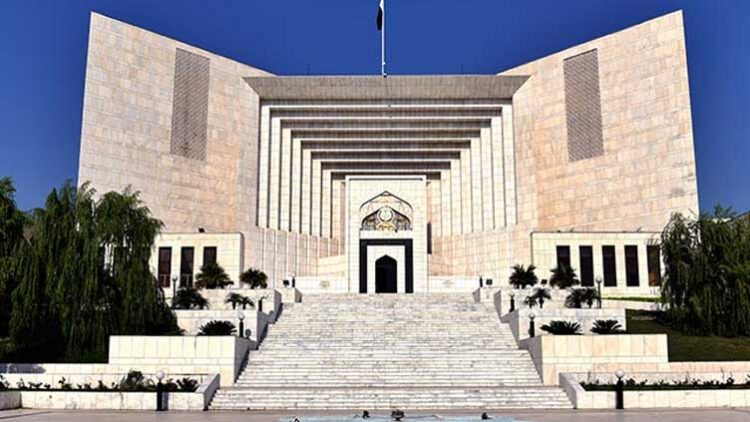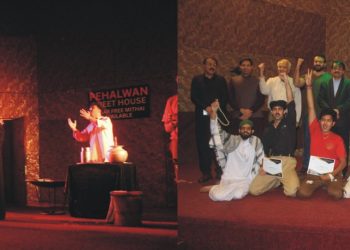ISLAMABAD (WEB News) – An eight-member larger bench of the Supreme Court (SC) will resume hearing petitions challenging Supreme Court (Practice and Procedure) Bill 2023 seeking to ‘clip’ suo motu powers of the chief justice of Pakistan (CJP) and constitution of benches, on Monday (today).
According to the roster issued on Saturday, the eight-member bench will comprise Chief Justice of Pakistan Umar Ata Bandial, Justice Ijazul Ahsan, Justice Munib Akhtar, Justice Sayyad Mazahar Ali Akbar Naqvi, Justice Muhammad Ali Mazhar, Justice Ayesha Malik, Justice Syed Hasan Azhar Rizvi and Justice Shahid Waheed would hear the case at 12:30 pm.
Advocate Muhammad Shafay Munir, Raja Amer Khan, Chaudhry Ghulam Hussain and others have filed identical petitions under Article 184(3) of the Constitution.
Article 184(3) of the Constitution sets out the SC’s original jurisdiction, and enables it to assume jurisdiction in matters involving a question of “public importance” with reference to the “enforcement of any of the fundamental rights” of Pakistan’s citizens.
The bill, titled the Supreme Court (Practice and Procedure) Bill 2023, is aimed at curtailing the suo motu powers of the office of the CJP in an individual capacity.
It was initially passed by both houses of parliament and sent to the president for his assent. However, the president had sent it back, saying that the proposed law travelled “beyond the competence of parliament”. The bill was subsequently adopted by a joint session of the parliament — albeit with some amendments.
However, while hearing the set of three petitions challenging the bill, the eight-member apex court bench on April 13 ruled that after the bill received either the president’s assent or it was deemed to have been given, the act that “comes into being shall not have, take or be given any effect nor be acted upon in any manner” — halting the law’s implementation when the bill came into effect.
The ruling coalition government was swift to reject the apex court’s ruling. President Dr Arif Alvi again refused to give his assent to the bill on April 19 and sent it back to parliament, following which it technically became an act of parliament on April 21.

















